Take advantage of early registration access by collecting your name badge —it's your key to accessing the conference. Have a question? We're here to assist with any inquiries you might have.
Join us to kick off the very first One Health, One Welfare Conference at the Skyline Social! Held in the stunning Pinnacle Room at the conference hotel, this relaxed evening gathering offers panoramic views of Ottawa’s skyline and a welcoming space to meet, mingle, and ease into the conference ahead.
Enjoy light appetizers, music, and the chance to connect with fellow attendees in a casual, come-as-you-are setting. A cash bar will be available.
Whether you're here to make new connections, catch up with colleagues, or simply take in the view, the Skyline Social sets the tone for a collaborative and inspiring conference experience.
Complimentary for all attendees. Advanced sign-up required.
Collect your name badge; it's your key to accessing the conference. Have a question? We're here to assist with any inquiries you might have.
Kickstart your day with a tasty breakfast before the sessions start. Breakfast is included in your registration. Please know that all food served is plant-based.
The 2025 One Health, One Welfare Conference officially kicks off with a warm welcome! More than an introduction, it's an invitation to a day filled with illuminating insights, transformative discussions, and a shared dedication to one health, one welfare.
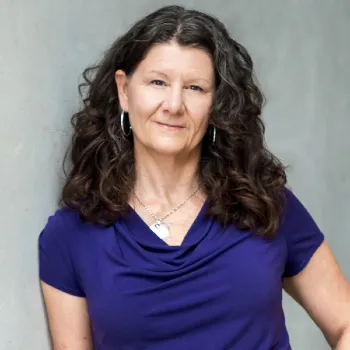

Do you need a moment to rest and recharge? Visit the Quiet Room, a serene and quiet space for reflection, relaxation, or a sensory break. No talking, no phone calls, and no meetings; just peace and quiet. All attendees are welcome.
The interconnectedness of human, animal, and environmental health has never been more evident. The One Health and One Welfare frameworks offer approaches to addressing complex global challenges such as zoonotic diseases, climate change, food security, and animal welfare.
This presentation explores the historical development, conceptual evolution of both concepts, examining key milestones in their adoption and integration into national and international policy. It will also address the practicalities and challenges of operationalizing these frameworks, including intersectoral coordination, data sharing, and legislative alignment.
By fostering a deeper understanding of One Health and One Welfare, this session aims to inspire cross-disciplinary dialogue and encourage the development of integrated policies that promote sustainable health and welfare outcomes for all species and ecosystems.
Appendix
“One Health” is a well-established concept veterinary and human medicine. It recognizes that human health and animal health are closely related, and that both are influenced by the health of the environment. The concept is applied mostly in cases where infectious diseases spread among species – typically from animals to humans – especially when some environmental disturbance causes a novel form of contact between species. Such disturbances have led to roughly one new infectious disease of humans every year for several decades.
“One Welfare” is a more recent concept which recognizes the broader connections between the well-being of humans, animals and the environment.
Key learnings
- Improving animal welfare often improves human welfare and vice versa. For example, programs to address mental health concerns of farmers can be important for the welfare of the animals in their care.
- Coordinated actions among agencies are needed to achieve better outcomes in both animal and human welfare. For example, social services and animal protection agencies need to work together to protect the welfare of unhoused people and their pets.
- Protecting the environment is important for the welfare of both people and animals. Hence the animal welfare and conservation movements, which have traditionally been quite separate, need to work together to protect the welfare of people, their animals, and free-living wildlife.

Take a short break and re-energize with refreshments. Visit the Quiet Room if you need a break from the conference hustle and bustle.
This panel will cover some of the challenges facing integrated watershed planning in Canada, including the inclusion of diverse stakeholders and rights holder perspectives on sustainability. Issues surrounding changing weather and precipitation patterns, disappearing glaciers, and changes in the timing and volumes of river flows will require adaptation and innovative planning approaches. Examples from emerging issues in Alberta and BC will be used to highlight how the integration of One Health and One Water approaches will be critical to developing a more holistic approach towards improving watershed planning for human, animal, and environmental welfare.
The panelists will also discuss Indigenous knowledge in watershed planning and the One Health Summer Institute as a meaningful initiative.
Key learnings
- Future restrictions will require consideration of water from new perspectives in a One Water approach.
- The inclusion of stakeholders and rights holders in the development of watershed planning and state of environment reporting is critical to success.
- The relationship between environmental, animal, and human health needs to be improved.

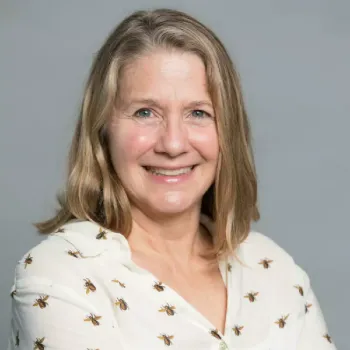
In this dynamic space small groups will come together to share ideas, spark connections, and explore fresh approaches to the complex challenges at the heart of One Health and One Welfare. These interactive conversations will encourage open conversation, cross-disciplinary learning, and creative problem-solving. Whether you bring a question, a success story, or a new perspective, you’ll walk away with insights and collaborations that can drive meaningful change for humans, animals and the environment.

🧂 Take some time to enjoy your lunch to recharge and refuel before diving into the exciting second half of the day.
Rooted in Dr. Jane Goodall’s principle that “every individual can make a difference,” this session introduces TACARE (Take Care) - a scalable, community-centered model supporting the holistic well-being of humans, animals, and ecosystems. Developed by the Jane Goodall Institute (JGI) in 1994, TACARE integrates One Health/One Welfare principles with a gender-responsive, decolonial lens. It is especially relevant when working in communities that are not your own, where reconciliation, trust-building, and long-term impact are vital.
This interactive session explores how TACARE addresses biodiversity loss, climate change, environmental inequity, and animal welfare, especially in BPOC, underserved, and Indigenous communities. Participants will engage in a participatory community mapping exercise - real or hypothetical - to co-develop strategies rooted in local knowledge, values, and leadership.
The session also introduces ways to communicate One Health/One Welfare through Humane Education, using JGI’s Roots & Shoots 4-Step Model for youth and TACARE for older audiences.
Key learnings
- Understanding the TACARE Framework: Gain an overview of the TACARE approach, its historical foundations, and how it promotes health and well-being across species and ecosystems, especially in non-dominant cultural contexts.
- Operationalizing One Health/One Welfare through TACARE: Learn how to embed TACARE within animal welfare and conservation programs to advance One Health outcomes with communities experiencing marginalization, colonization, and/or environmental injustice.
- Youth Engagement in One Health Education: Discover how to apply the Roots & Shoots 4-Step Model and TACARE to foster youth-led action in humane education, encouraging intergenerational leadership in human-animal-environment health.

This initiative contributes to the global dialogue on planetary health by showcasing the Associated Faculties of Medicine of Canada (AFMC) national efforts to integrate planetary health into Canadian medical schools. With an approved roadmap and detailed progress plan for implementation, this project focuses on curriculum, governance, research, and policy development. This initiative offers insights into progress and lessons learned, aligning with international efforts to advance planetary health.
Key learnings
- Share the AFMC’s national strategy and the progress of its approved roadmap for integrating planetary health into Canadian medical schools.,
- Facilitate global research collaborations on the intersections of climate change, health, and planetary health.
- Develop and disseminate policy recommendations that promote the integration of planetary health into medical education and healthcare systems.

Survivors of gender-based violence experience numerous challenges and barriers that impact their safety decision-making, including considerations regarding the interspecies members of their families. As more gender-based violence shelters become pet-friendly or offer animal safekeeping options, survivors with farmed, larger companion, and working animals are often excluded from these programs. This study is funded by Social Sciences and Humanities Research Council of Canada through the Canada Graduate Scholarship – Master’s (CGSM), and focused on gathering survivor voices as well as the voices of service providers to offer insight as to how the bond between survivors and their farmed, larger companion, and working animals impacts the survivor’s safety decision making. This presentation will share information on the entanglement of the violence link, the human-animal bond with these types of animals and the complexities and challenges of experiencing/fleeing violence with these types of animals.
This presentation will offer a summary of the current published research regarding survivors in rural, remote, northern, and farming communities, as well as the initial findings from this innovative study.
Key learnings
- Understand the human-animal bond with these types of animals and the complexities and challenges of experiencing/fleeing violence with these types of animals.
- Understand the impact of the violence link in rural communities and the intersection of challenges/barriers regarding addressing the violence link in rural, remote, northern and farming communities.
- Learn recommendations of innovative strategies to support survivors of GBV with these types of animals.
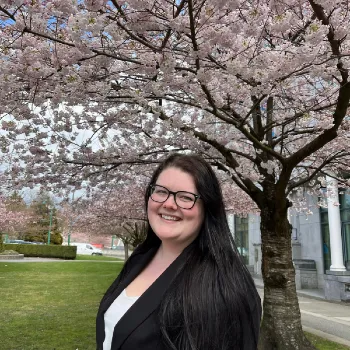
Take a short break and re-energize with refreshments. Visit the Quiet Room if you need a break from the conference hustle and bustle.
Marine and terrestrial protected areas are fundamental to the One Health/One Welfare framework. These areas not only facilitate biodiversity conservation but also enhance human and community health, uphold cultural values, and bolster economic resilience. By referencing Canada’s Quality of Life Framework and Canadian Parks and Wilderness Society’s forthcoming report on the socio-economic benefits of protected areas, this session will explore the multifaceted contributions of conservation efforts. Specifically, it will highlight how these efforts support ecological integrity, biodiversity, and climate resilience while promoting physical and mental health, cultural connections, and sustainable livelihoods.
Furthermore, the session will offer insights into how integrated conservation strategies can drive sustainable development, climate adaptation, and holistic well-being across Canada and beyond.
Part 1: coming soon.
Part 2: Oceans and Quality of Life: The Role of Marine Conservation in Human and Environmental Well-Being
Healthy oceans are essential for healthy communities, economies, and ecosystems. In Canada, the Government’s Quality of Life Framework offers a holistic way to understand well-being by bringing together economic and non-economic dimensions, such as environmental quality, health, prosperity, social cohesion, and culture. When applied to marine conservation, this framework helps reveal the many ways our oceans shape life across the country.
Marine conservation measures, such as sustainable fisheries, responsible tourism, and the protection of marine habitats, contribute directly to livelihoods and local economies. At the same time, they safeguard biodiversity, preserve cultural and spiritual connections to the sea, and provide opportunities for recreation, learning, and inspiration.
Oceans are also central to addressing climate change. Coastal and marine ecosystems store and sequester carbon, buffer shorelines from extreme weather, and help communities adapt to changing conditions. By framing these contributions within the Quality-of-Life Framework, we can better capture their value across environmental, social, cultural, and economic domains.
This presentation will highlight how a quality-of-life lens can connect marine conservation to human and ecological health, climate resilience, and intergenerational well-being. It will explore practical examples from Canadian fisheries, tourism, and marine protected areas, illustrating how healthy oceans are fundamental to the well-being of all.


Access to animal and human health services remains a challenge in many fragile and remote contexts—from degraded ecosystems in rural Africa to underserved communities in Northern Canada. This session highlights two complementary approaches spearheaded by Veterinarians Without Borders (VWB): the Community One Health Empowerment in Rwanda and Senegal (COHERS) project and the development of a global Community Animal Health Worker (CAHW) framework.
Drawing on lessons from COHERS, participants will explore how environmental degradation, weak animal welfare systems, and gender inequality drive zoonotic disease risks such as Taenia solium and anthrax. The project has trained more than 555 community health actors—nearly half women—who lead sanitation initiatives, improved pig management, and social norm change through tools like comic books, radio, and skits. These women-led One Health teams demonstrate how inclusive approaches can mitigate disease risks, strengthen surveillance, and build resilience in vulnerable ecosystems.
Complementing this, the CAHW framework presents a structured, 12-section model to guide program design, training, outreach, and sustainability strategies. Tested in global contexts and adapted for Northern Canada, the framework emphasizes community engagement, tailored training, and integration of One Health principles to enhance food security, climate resilience, and companion animal care. Through interactive exercises—brainstorming, role-playing, and real-world scenarios—participants will critically examine and refine the framework for maximum impact.
Together, these initiatives illustrate a replicable, participatory model for building sustainable, community-driven health systems that bridge gender equity, environmental stewardship, and animal welfare.
Key Learnings
- Learn how women-led One Health teams improve community health outcomes.
- Identify best practices and gaps in strengthening CAHW programs across global and Northern Canadian contexts.
- Learn how community-led approaches can drive sustainable, inclusive animal and human health outcomes.
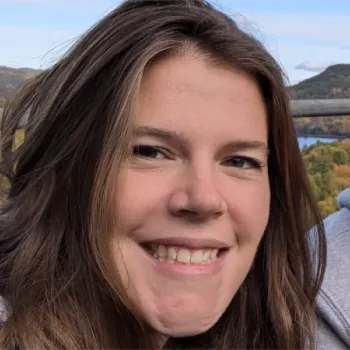
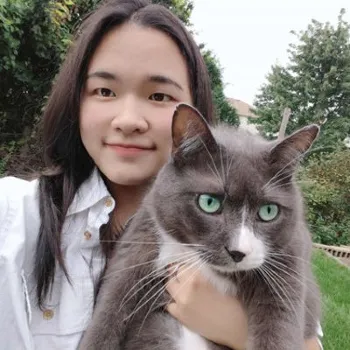
Community Veterinary Outreach (CVO) is the only veterinary-based organization that provides free health and social services for both pets and their humans. This model of care is called One Health. We serve adults and youth and their pets experiencing houselessness, housing vulnerability, or street involvement. We serve communities in 11 regions across Canada. We provide preventive veterinary care, combined with health and social services for people, through partnerships with human health providers, including smoking harms reduction, vaccination (including influenza and COVID-19), primary health care needs, dental care access, harm reduction including sexual health testing / education and naloxone kit provision and training, legal advice, and mental health support.
This session will present a summary of the CVO model and two recent initiatives that address client and pet needs in the community: a) An MSW project which addressed mental health needs during clinic events and a resource guide (Ottawa-Carleton) created for clients and their support workers, including pet resources. b) Barriers to pet care access and addressing root causes through training for veterinary professionals, client support agencies, and stakeholder groups.
Key learnings
- The CVO model, which includes details of preventive pet care and access to care, the definition of One Health in this context, and the approach to human health improvement via the human-animal bond as a gateway.
- Outcomes of an MSW project which addressed mental health needs during clinic events and a resource guide (Ottawa-Carleton) created for clients and their support workers, including pet resources.
- Ongoing outcomes of a funded project addressing the root causes of barriers to providing access to veterinary care to vulnerable populations. Discussion of education and training sessions for veterinary professionals, client support agencies, and community stakeholder groups will be presented.
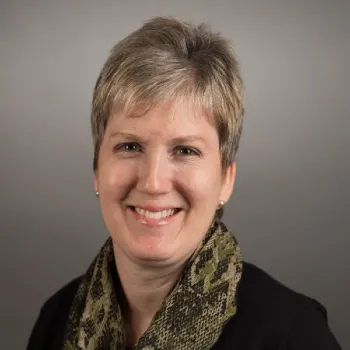
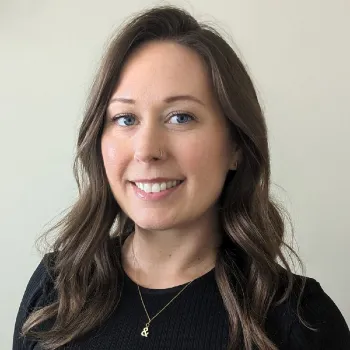
Take a short break and re-energize with refreshments. Visit the Quiet Room if you need a break from the conference hustle and bustle.
In this dynamic space, small groups will come together to share ideas, spark connections, and explore fresh approaches to the complex challenges at the heart of One Health and One Welfare.
These interactive conversations will encourage open conversation, cross-disciplinary learning, and creative problem-solving. Whether you bring a question, a success story, or a new perspective, you’ll walk away with insights and collaborations that can drive meaningful change for humans, animals and the environment.

In an increasingly interconnected world, the convergence of human, animal, and environmental health demands a unified policy response. This session explores how the One Health and One Welfare frameworks can drive international policy coherence, enhance government commitment and investment returns, and promote the primary preventive, upstream action across sectors.
Global challenges such as pandemics, antimicrobial resistance, climate change, and food insecurity transcend borders and disciplines. Fragmented policy responses often lead to inefficiencies and missed opportunities. By aligning health, welfare, and environmental goals through a One Health/One Welfare lens, governments can achieve greater impact with fewer resources, leveraging synergies across sectors.
Key learnings
- The return on investment and additional benefits of international policy convergence
- How to close the aspirational and action gap
- How we can enable government to make big changes

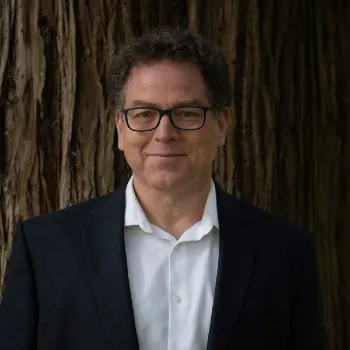
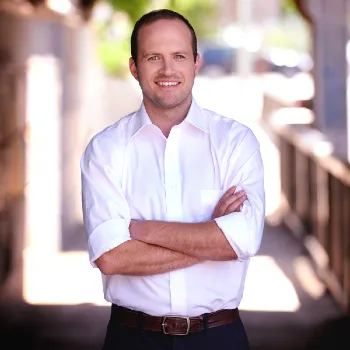
Collect your name badge; it's your key to accessing the conference. Have a question? We're here to assist with any inquiries you might have.
Kickstart your day with a tasty breakfast before the sessions start. Breakfast is included in your registration. Please know that all food served is plant-based.
Welcome back to the final day of the One Health, One Welfare Conference. Join our host as we reflect on yesterday’s learning and see what is in store for this final day.

Do you need a moment to rest and recharge? Visit the Quiet Room, a serene and quiet space for reflection, relaxation, or a sensory break. No talking, no phone calls, and no meetings; just peace and quiet. All attendees are welcome.
In an era marked by increasingly complex emergencies—ranging from pandemics and natural disasters to climate-induced displacement—the need for integrated, systems-based approaches to preparedness, response and mitigation has never been more urgent. This plenary explores the concepts of One Health and One Welfare through the lens of community resilience, emphasizing the interdependence of human, animal, and environmental well-being in crisis contexts.
Drawing on real-world examples and cross-sectoral insights, the session will highlight how One Health and One Welfare frameworks can inform risk assessment, planning, mitigation, and recovery strategies that are inclusive, equitable, and sustainable. Key topics include the role of emergency relief, recovery, and risk reduction services including integrating mental health support and animal welfare in evacuation planning, exploring the influence and impact of industrial resource extraction practices on climate and biodiversity crises, and potential mitigation strategies, and inclusive emergency management practices including the role of fire departments, their current collaboration with humane societies and other animal welfare organizations, and the ask for a National Fire Administration.
Participants will gain a deeper understanding of how integrating these frameworks into emergency mitigation and management practices can strengthen community resilience and sustainability, foster trust across sectors, and enhance the capacity to respond to future crises.
This plenary will also offer practical tools and policy recommendations for operationalizing One Health and One Welfare in emergency preparedness and response systems.
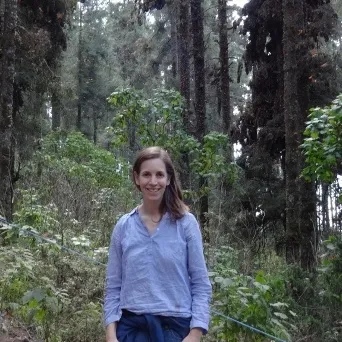
Take a short break and re-energize with refreshments. Visit the Quiet Room if you need a break from the conference hustle and bustle.
Despite factory farming beginning in the middle of the twentieth century, and now producing the majority of animal sourced food, there is very little research quantifying its multiple effects on animal welfare, human health, and the natural environment.
The Factory Farming Index is the first attempt to put into numbers the full harms caused by this industry which largely operates behind closed doors. Here we estimate that ~76 billion chickens, pigs, and cattle were factory farmed in 2020. 46% were farmed in just four countries: China, Brazil, the USA, and Indonesia.
We first estimate the effects of factory farming on human health as factory farming causes 1.8 years of healthy human life to be lost per person on average globally, primarily due to high antibiotic use and emission.
We then quantify the effects on animal welfare. Factory farmed animals live as little as 2% of their potential lifespans: in total this is 550 billion years of potential animal life are lost due to premature death from slaughter, culling, and on-farm mortalities in factory farms each year. Factory farmed animals live in poor welfare, and we estimate 25 billion years of healthy animal life are lost each year. These are huge numbers, and to conceptualize this we calculate that each human, on average globally, causes the loss of 73 years of healthy animal life per year due to consumption of factory farmed products. If this health and welfare burden were borne by humans, it would be considered a global emergency.
Key learnings
- Coming soon
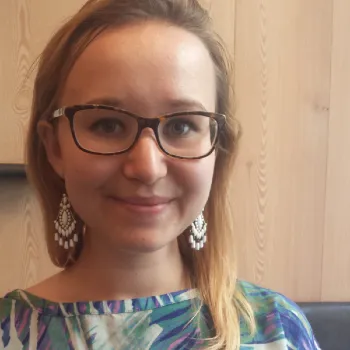

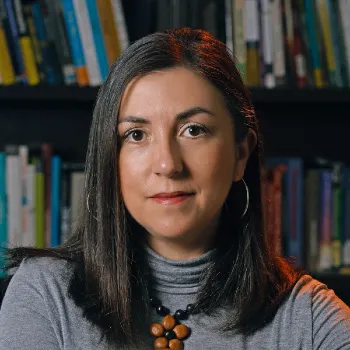
🧂 Take some time to enjoy your lunch to recharge and refuel before diving into the exciting second half of the day.
About half of the food produced in Canada is wasted or lost, yet little attention is paid to the price this has on animals, our environment and our society. This panel will be co-hosted by Allison Penner, Executive Director of Reimagine Agriculture, and Dr. Heather McLeod-Kilmurray, Law Professor at the University of Ottawa, and will share how understanding the causes and solutions to food waste and loss can lead to a shift towards a One Health/One Welfare paradigm. It will include understanding the role of animal agriculture in food waste and loss, governance tools to mitigate issues in the food system, and share guidance for advocacy to corporations, decision makers and creating essential collaborations.
Key Learnings
- Why half of the food produced in Canada is wasted and its role in increasing conventional animal agriculture.
- The legal framework governing the food system and food loss and waste, with opportunities to change.
- How to advocate to decision makers, corporations and stakeholders to make change.
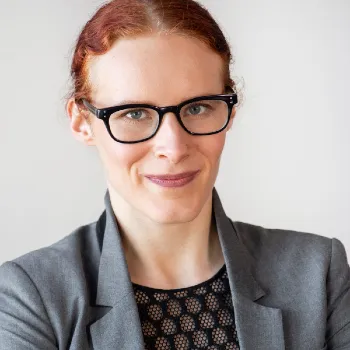
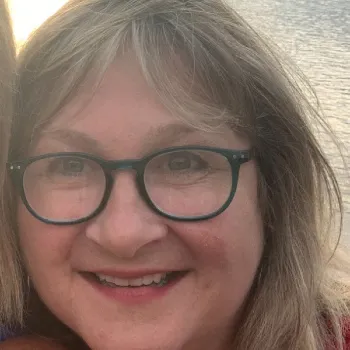
This interactive session will explore strategies for measuring the outcomes of One Health initiatives. Presenters will share their successes, failures, and suggestions for improving measurement in One Health. The audience will be encouraged to share their experience and thoughts through Mentimeter. The importance of measurement will be discussed — why it matters and key considerations for meaningful reporting, including process, output, outcomes, and impact measurement. We recognize that evaluation is often an afterthought of programs and initiatives and hope this session will encourage participants to think about measurement from Day 1.
An overview of some existing tools and practices will be shared, alongside a focus on Indigenous data sovereignty and OCAP principles. This session will ask participants to reflect on their current measurement practices and then discuss how to improve impact assessment in One Health work. The use of Mentimeter will allow participants to test their knowledge and learn from one another through collective insights. By the end, participants will have a clearer understanding of how to enhance outcome measurement in One Health, fostering more impactful and culturally responsible practices.
Key Learnings
- Effective outcome measurement in One Health requires integrating evaluation from the start of projects, emphasizing its importance for meaningful reporting and impact.
- Indigenous data sovereignty and OCAP principles are essential and lead to culturally responsible and ethically sound evaluation practices.
- Interactive tools such as Mentimeter and group reflections facilitate peer learning, helping participants improve their measurement strategies and share best practices.


Take a short break and re-energize with refreshments. Visit the Quiet Room if you need a break from the conference hustle and bustle.
One Health and One Welfare are approaches that recognize that the health and welfare of people, animals, and the environment are deeply interconnected. While they are often used to plan action during times of crisis such as pandemics, crises are rarely random events. Crises are often symptoms of systemic issues like poor environmental health and the quality of life of people and animals. Our approach to fixing systemic issues tends to address the symptoms as well. Our solutions often reflect our organizational identities and biases, the issues we focus on, the solutions we pursue, and the limited number of stakeholders we regularly engage with. This presentation will explore how current strategies for managing the impacts of animal agriculture may unintentionally exacerbate the very problems they aim to solve. One Health One Welfare offers a more holistic and collaborative framework. The aim of the session is not to provide a solution but to suggest a process for cross-sector collaboration that targets systemic behaviour rather than isolated symptoms. We’ll also examine initiatives like COBEA in Brazil, which brings together diverse stakeholders to set long-term goals for animal welfare and sustainability.
Key learnings
- Our current approach to improving animal production may exacerbate the problems they aim to solve.
- One Health One Welfare's recognition of the interconnection between the health and welfare of animals, people and the environment suggests that negative impacts are likely from a shared set of root causes. Addressing root causes will reduce the need for tradeoffs.
- Collaborative initiatives of relevant stakeholders offer the best opportunity for sustainable change.
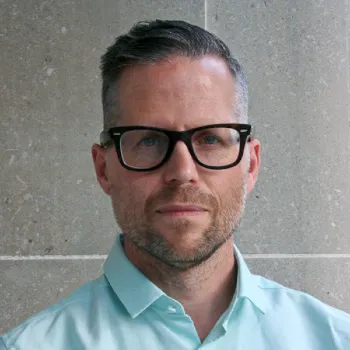
This panel brings together leading voices in policy, enforcement, and research to explore the complex and often hidden impacts of the wildlife trade in Canada through a One Health / One Welfare lens. These experts will share insights on integrating human, animal, and environmental health in policy responses; the Pan-Canadian Approach to Wildlife; wildlife law enforcement and international crime prevention; and academic research on environmental crime and strategies to prevent wildlife trafficking and unsustainable legal trade. Together, they will offer a multidisciplinary discussion on how Canada can respond to wildlife trade challenges leveraging the One Health model to support wildlife health.
Key learnings
- Canada’s role on the global stage in both illegal and legal wildlife trade
- How wildlife laws and policies do, don’t, and could protect wildlife in trade
- What short- and long-term steps would enable government to make change

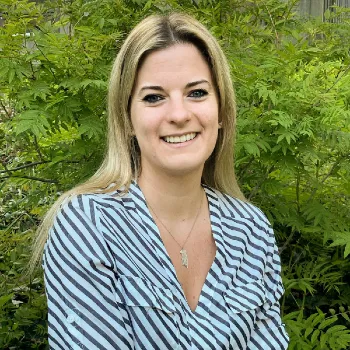

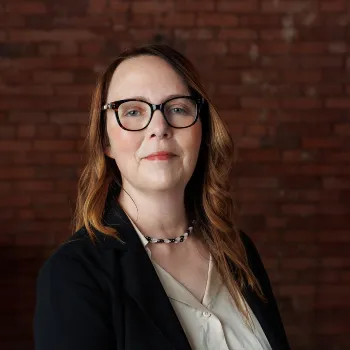
Take a short break and re-energize with refreshments. Visit the Quiet Room if you need a break from the conference hustle and bustle.
The One Health, One Welfare Conference will conclude with an interactive Recommendations Workshop to help attendees turn ideas into action. Building on the insights, discussions, and collaborations from across the conference, this workshop will bring together participants to identify shared priorities and shape practical recommendations for advancing One Health and One Welfare in Canada.
Guided by our facilitator, Barbara Cartwright, CEO of Humane Canada, attendees will work collectively to distill key themes, highlight opportunities for cross-sector collaboration, and outline next steps that can drive meaningful change at community, organizational, and policy levels.
Your voice matters, so join this workshop to help ensure that the outcomes of the conference don’t end when the event does, but instead contribute to a stronger, more integrated approach to human, animal, and environmental well-being.

We are living through a time of interconnected and compounding crises. The convergence of climate change, infectious diseases, antimicrobial resistance, and biodiversity loss reveals the deep, inextricable links among humans, nonhuman animals, and the environment. The One Health framework is designed to reflect this complexity. Yet, in practice, One Health often remains siloed, overlooking the upstream determinants that shape these interconnections and the nuances needed to approach them.
In this talk, we will explore pathways toward a more expansive and whole One Health. Drawing on findings from a systematic literature review, Kaylee Byers will highlight the urgent need to embed social and ecological determinants of health into One Health research, policy, and practice, while Samantha Fuller will provide insights on social determinants of health from Indigenous organizations such as the First Nations Health Authority in British Columbia.
Mapping these complexities requires sustained coordination and collaboration across sectors; a long-standing tenet of the One Health approach and Indigenous ways of knowing and being. Yet effective communication across disciplines, sectors, and worldviews remains a major challenge. Kaylee Byers will argue that this complexity demands the development of One Health communication as a distinct field of inquiry, grounded in co-created, bi-directional communication structures. Samantha Fuller will futher challenge us to re-evaluate the terminology we use in our communications and the worldviews those words reinforce.
Just as all organisms evolve – so must One Health. Posthumanist thinking offers a necessary reorientation by embracing relational ways of thinking, decentering humans, and recognizing the agency of nonhuman life. In addition, Fuller will provide the Secwepemc perspectives on collective health and what it means to live a good life.
Together, these ideas invite us to reimagine the conceptual and practical boundaries of One Health in an entangled world.
Key learnings
- Practicing holistic One Health requires deeper engagement with the upstream determinants of health that shape our collective wellbeing.
- Communication is a foundational component of One Health, and its extension across sectors and worldviews requires unique and dedicated approaches .
- One Health must embrace new epistemologies to challenge anthropocentric assumptions and embrace more relational ways of thinking.


As we conclude the first-ever Humane Canada’s One Health, One Welfare Conference, we will reflect on the inspiring ideas, connections, and commitments shared over two days. Together, we will have explored the deep interconnections between human, animal, and environmental health, and strengthened the resolve to approach global challenges with collaboration, compassion, and innovation. These conversations won’t end here; they are the foundation for ongoing partnerships and actions that will help shape a healthier, more sustainable future for all.


